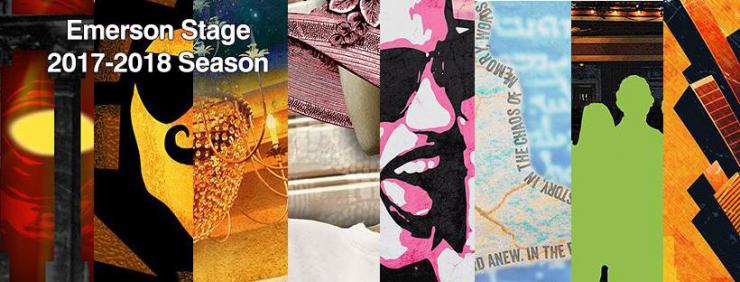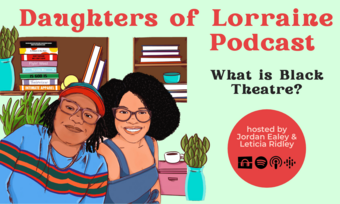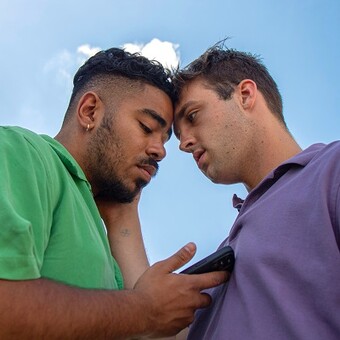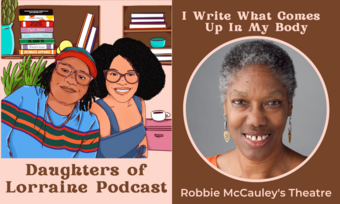Little Lemon
A Case for Reimagining the University Season
Most university theatre departments produce an annual season of plays. Generally, as my experience has suggested, these departments establish that the purpose of producing these plays is twofold: 1) to serve the growth of students in preparation for advanced study and/or entry into the profession, and 2) to serve their audience. Each individual department has its own specialties and interests, however, most departments likely return to those two guiding principles.
As a method of assessment, I believe these two principles serve as excellent guides for building a university theatre season. I also believe that, by and large, we are not accomplishing either goal as effectively as theatre departments nationwide can and should be.
My belief stems from a simple disagreement in activity: in the last decade, and moving into the next one, our profession and our audiences have changed rapidly. Regional theatres from coast to coast that had run successfully for decades, from the Kentucky Repertory Company to the American Musical Theatre of San Jose, have shuttered their doors as funding and audiences have disappeared. Theatre departments across the country, from SUNY Albany to Washington State University, have been cut from universities who no longer see the art as an integral element of education or social progress. Yet the content we present, and the frame in which we present it, remains virtually unchanged.
I would like to argue that it is urgent that the national community of university theatre departments shift the processes and expectations we utilize to pursue these goals in our production seasons in order to meet the needs of a changing profession and an evolving audience.
I believe we must reimagine our audiences as the students at our universities (regardless of major), our recent alumni, and their social peers.

Reimagining Audiences
The profession our students are entering, whether or not it can be exclusively called theatre, requires a skill set that allows them to adapt to multimedia, hybrid, interactive, collaborative, physical, devised, site-specific, and/or community engaged performance opportunities. To prepare our students, these developments must become integral elements of our production seasons. I also believe that our imagined audience, for the most part, is a segment of the population that is disappearing. I believe we must reimagine our audiences as the students at our universities (regardless of major), our recent alumni, and their social peers.
How can we understand what this new theatre looks like, and how do we invite these new audiences to join us? Let’s begin by inquiring about this prospective audience.
Reimagining Audience Behavior
As a twenty-something, I am accustomed to exist not as a consumer, but as a curator, participant, and critic in my entertainment experiences. Whether I’m sifting YouTube videos, dancing in a flash mob downtown, or Yelping my way through the available live entertainment on any given night within a two-mile radius, I expect to find an experience that will satisfy my entertainment wishes. Even on a down night, at a show that misses the mark, I expect to be able to ditch it within seconds, not minutes, and certainly not have to wait hours to search for greener entertainment pastures.
However, we often tell these twenty-something audiences, when we get them into a theatre, to sit still, stop interacting, and resist any desire to shape, shift, or engage with the show. In theatre, as we’ve known it, these were ways of respecting art, just like an art museum says Do Not Touch, or a professor expects students to passively be lectured to. This expectation is no longer effective, and no longer necessary.
The current wave of entertainment, both live and recorded, suggests that the desire to actively engage in our media consumption is not behavior to curb, but an excellent quality to cultivate. This quality, as we develop its acuity, will quite possibly become the cornerstone of future careers, cultures, and even societies.
New Audiences, New Work
Next, we ask our audiences to listen to words by authors (mostly dead) about cultures (mostly past), and we expect them to draw significance and meaning that is entertaining, educational, and self-reflective. Antonin Artaud adeptly addresses this in his essay No More Masterpieces:
Masterpieces of the past are good for the past: they are not good for us. We have the right to say what has been said and even what has not been said in a way that belongs to us, a way that is immediate and direct, corresponding to present modes of feeling, and understandable to everyone.
As a theatremaker, I’m embarrassed to admit that I’ve sometimes experienced the sensation of superiority; the concept that we are producing something so refined that, if people sit quietly, we will bring them up to our distinguished heights. Each progressive year I find myself doubting the substance of any of those assumptions, which I realize existed mostly to foster my ego while I was earning a pittance of a living presenting art that has properly been relegated to historic status. I don’t believe the audience that isn’t showing up is getting it wrong—we are.
To be clear, I believe challenging (not simply pandering) to our audience is necessary, but we first have to invite them through the door. And while I believe we can gain immense knowledge from our ancestors, we still have to create space for our own expressions to become primary.
Traipsing through a hotel, hospital, or warehouse—where the performance is principally original, physical, and architectural, and the audience is invited to anonymously roam through the experience as they wish—is one way to bring audiences into a frame they may more readily embrace.
Successful Experiments
Let’s take a look at some theatre experiments that are finding success in the last few years. Punchdrunk’s Sleep No More at the McKittrick Hotel in lower Manhattan has captured the excitement of a whole wave of theatregoers so much so that imitations and reimaginings have run through the boroughs in New York, including a wildly successful Greenpoint Hospital-set Alice in Wonderland takeoff Then She Fell. Traipsing through a hotel, hospital, or warehouse—where the performance is principally original, physical, and architectural, and the audience is invited to anonymously roam through the experience as they wish—is one way to bring audiences into a frame they may more readily embrace.
An example of a modern success of active audience participation is a rock concert, where audiences might get lost in an ecstasy of hearing, seeing, feeling, singing, and jumping in unison to the pulse of vibrations that echo through the building.
In addition, rock concerts draw brilliantly on a seminal principle of performance: anticipation. Audiences, in anticipation of the impending concert, will play and replay an album to the point that they passionately sing back to the performers in concert en masse. In fact, in 2008 at NPAC, the National Performance Arts Convention, a study evaluating audience experience at live performances revealed that the number one indicator of an audience member’s experience is anticipation. This means that while attending a performance is a subjective experience built by a series of factors, how we anticipate a performance is the most important way we build our ultimate experience. Therefore, theatre performances, like rock concerts, begin days, months, or even years before the proverbial curtain rises.
The capacity theatre artists have now to engage in a series of mediums before, during, and after a live event are immense, and expanding almost daily. The onus is on us to be not only responsive, but also innovative, when it comes to how we utilize these platforms. If the content we see on Facebook, YouTube, Vine, Twitter, etc., seems poor, I believe it marks our own failure to shift their use. I see these all as opportunities to redefine our theatre-creating and theatre-going experiences. What better place is there to study possibilities for building theatrical anticipation than in universities, the hubs of expanding knowledge?
In a TED Talk by Dan Palotta, inventor of the multi-day AIDS Rides, he claims that people don’t resist participation because they feel overwhelmed by the requests being made of them. On the contrary, Palotta suggests that people feel guilty for not participating deeply enough. Instead of asking less of an audience who seem complacent, as theatres often do, Palotta might suggest, why not ask more?
In my current post at California State University, Long Beach, we are deep in deliberations on how to leap into these opportunities to reimagine theatre for a new generation. We agree that we want to develop students who are leaders and innovators of a generation that includes careers and media that have yet to be imagined. We agree that we want student and alumni audiences to attend our productions and be enlivened, challenged, and entertained. But intent only moves us so far.
Experiments at CSULB
Fortunately, a few experiments have offered valuable experience, and are beginning to shift our theatre-making terrain within a university context. In 2008 Professor Anne D’Zmura created The Green Piece in collaboration with over thirty students. They challenged the local community to learn about green issues, bringing the audience into the creative mix long before production. This framework set up a performance that could be shared between actors and audience as a mutual act everyone had collaborated to create.
Lemon Boots, an immersive physical theatre performance I directed at CSULB, began its journey in spring 2012 with a group of fifteen students. I challenged them to answer the questions: What do we need to make theatre about? And how do we need to make theatre? The answers spanned a range of interests and possibilities. Eventually, we arrived at a concept we called Lemon Boots. It centered on the concept of anonymity. A student wondered, what would happen if I lived my entire life anonymously? And little Lemon set out on her journey, searching for her new self in a desert after her identity, her boots, was stolen from her. A group of sixteen performers gathered and we investigated these questions through a physical process to create the performance.
There are three lessons I learned in this process that may be useful in reconsidering how we produce and select shows for our theatrical seasons. One, when students were asked to recreate previously existing material they were not as connected, driven, or precise as when they were allowed to invent their own version of a concept. Two, when I gave more creative responsibility to the students than they anticipated, they consistently surprised themselves (and me) by how much stronger their capacity was than what they previously imagined. Three, the bond the students created with each other, the performance material, and the audience was unparalleled compared to what I’ve experienced when directing traditional material.
The closest I have experienced to bridging a theatre experience with something like a contemporary nightclub was this past summer with my colleague Professor Hugh O’Gorman, in a collaborative workshop production he directed with students and recent alumni called 515HYP, Sunken Memory, part of a larger project his company is developing. Techno music, expansive projections, aerial acrobatics, operatic singing, and club-like interactive intimacy built an experience that pointed firmly to a theatre I can imagine university students attending with significant anticipation.
This year we will continue exploring terrain with EPIC (Educational Performance In Community), a community based theatre company that will research local issues in greater Long Beach, create performances based on that research, and then return to those schools, organizations, and community centers to perform. We are also supporting a physical theatre performance devised solely by students, including a director and several actors who were immersed in the Lemon Boots process last year.
None of these examples suggest the direction university theatre productions should move. In a state of change there is no single answer to what direction we need to choose. The more we can offer each individual vision a path to fruition, the more we can find flexibility and community around the mysteries of new production concepts, the more we can pave trails that will lead to meaningful discoveries. The more we invite these potential audiences to interact with, curate, review, and shape these performances, the more we can build the seeds of meaningful experiences for performers and audiences.
We must revisit the question: if we forgot everything we know, and simply held to the concept of people together undergoing meaningful experience, what would we build that experience to be?








Comments
The article is just the start of the conversation—we want to know what you think about this subject, too! HowlRound is a space for knowledge-sharing, and we welcome spirited, thoughtful, and on-topic dialogue. Find our full comments policy here
Ezra,
I'm of the older generation that still recognizes the valid existence of 'masterpieces'. However, I do want to express my appreciation for much of what you shared, finding much value and forward thinking in the issue of contending with the 'where do we go from here' and 'how to innovate new forms for a new population' themes. I do look forward to seeing how these innovations will present themselves [hopefully] as our culture navigates the territory of entertainment, and more specifically 'theatre' as entertainment; The last two paragraphs of your piece I felt the spirit of your intent which I found clear, eloquent, and embracing of what might be possible. There are also a few perspectives expressed, primarily in the earlier section of your offering that I wish to address.
I googled the essay and read it. Two comments it made. First: "And if for example a contemporary public does not understand Oedipus Rex, I shall make bold to say that it is the fault of Oedipus Rex and not of the public." I don't think the author should easily be blamed for an audiences lack of understanding. That can be a rationalization that keeps a contemporary audience from honing their mental acuity as well as basic attention span capacities. This leads into the second comment from the 'no more masterpieces' essay you referenced, "But the whole in a manner and language that have lost all touch with the rude and epileptic rhythm of our time." Well I do think in many ways we do live in a time and culture which is rude and has an epileptic rhythm. That does not mean we should necessarily cater to that 'rudeness' or 'epileptic rhythm' with entertainment innovations that will excite audience attendance with 'novelty' and possibly fool ourselves that we are offering them art. I'm not saying innovative approaches to theatre are not needed, I'm saying there is a balance that we should strive for. That balance is of course interpreted in different ways by various factors.
I can see the value and purpose of immersive and interactive theatre, I also think there is a place for more traditional forms of theatre presentation. A good story, told well, can indeed be mesmerizing as well as challenging. Many if not most of the masterpieces that you seem to think are antiquated are masterpieces because they express something about the human condition that thematically carries through the different time periods, that hold what might be called mythic relevance, and thus touch a deep part of our psyche.. You say at one point " Even on a down night, at a show that misses the mark, I expect to be able to ditch it within seconds, not minutes, and certainly not have to wait hours to search for greener entertainment pastures." I applaud your capacity to totally comprehend within a few seconds whether a show 'misses the mark' or not, and your impatient assertion of the right to immediately leave if it does not meet your expectations or standards. Well of course you have the right to leave anytime you want, you might, along with others holding this attitude and belief, want to investigate any possible issues around your concepts of 'missing the mark' and the need for 'immediate gratification' i.e., impatience. That comment makes me wonder what you do if you are in a conversation that within a few seconds you perceive as 'missing the mark.' Do you just get up and leave?
You also say: "The current wave of entertainment, both live and recorded, suggests that the desire to actively engage in our media consumption is not behavior to curb, but an excellent quality to cultivate". There is certainly a creative place for this perspective, and I encourage ways to cultivate that. I also humbly submit the idea that 'to consume' is to take in, and that a valid and indeed even useful way to take in, is to listen. Listening, as well as watching can be active, it is not necessarily passive. In potent theatre it isn't. I do support you in your vision and creative ideas and desires. I also want to put forth the idea that past forms of theatre, just because they are from the past, do not have to be totally thrown away. From the beginning of time, since we as a species have been sitting around a campfire, basic story telling has always engaged us. This fundamental structure must never be lost in the name of innovative technology. .
while I am very curious about the constraints that continual immersive theatre presents, it is also recognized that theatre does NOT have to be all things to all people. I have communities of color that will not and do not get INTERACTIVE theatre experience. Native communities have a different way of storytelling. And the UNIVERSITY experiment to make, re-make and educate the theatre history/techniques/values will not go away - AND we will constantly be in the mode of critiquing the work and its value.
I do remember that during 911, while in grad school I questioned why I was there. The following month Mary Overly came to campus and cried as she shared with us the need to continue to learn, craft and celebrate our chosen life path. There is a contemporary desire to change the critique and the methodologies. Please do so, and recognize that you are changing a response to SOMETHING that was there before.-- what was that thing? is it not of value - not all the time but for sure as a guide to the future. Oh yea. attention span theatre will always be a problem.
Thanks for all the opinions and the range of emotional reactions.
Hi Harry! Isn't interactive theater a mode of theater for Native and many cultures of color? African theater for instance has many interactive processes. There is also a contemporary desire to pull upon many traditions that are not often included in a university canon.
AND yes.. however, I believe that the "University" model has historically - and not on all fronts I admit up front- been struggling to find a way to make that mode applicable - It is usually the artists in the community that connect -the academic and theorists have a distance that is sometimes challenging. AND OF COURSE EVERYONE will be defensive of their approach... Ultimately, we still have design and sound and other elements of theatre that interface with text, movement and the unexpected moments of exhileration (and frustration) we still for some reason want to "make theatre" . old habits die hard.
Everyone doesn't have a platform of defense on the university level i find. Nor is the university considered ground for innovation but s often stagnated by an "old boys" club that considers anything other than the canon less than. Rather than being inclusive, I have found the university stage un-inclusive and often reifying outmoded and oppressive norms.
Many "masterpieces" are such because the dominating culture has deemed it so and the canon is not very diverse in thought, style or ethnically inclusive, Work of non-white and non-straight-male playwrights are rarely considered masterpieces (insert exceptionalism here) and the canon promoted often reflects and reinforces a non-dynamic status quo that is insulting at best to many and oppressive at its worst. An inability to shake the tyranny (realism, for instance). What of the student of color, the non-straight student? Where is its "place" (a very telling word IMO)
While I believe that interactive theatre can be fun and interesting as a slice of the theatrical landscape, I posit that the real problem keeping audiences away is that most theatre is not very good. Period.
We don't rehearse long enough to give the artists the chance to develop unique and special experiences through careful and thorough investigation of the text, character development, staging, presentation style etc...
We lock virtually every production into the same time constraints, in the bizarre belief that one process fits all. Consequently we end up with very "thin" productions in which we get the general shape of the piece, but not a great work of art.
Hi,
First let me thank the writers, posters and all who enter this worthy conversation. I would just respectfully disagree with you. I don't believe that longer rehearsals will necessarily result in better productions. If the process is not challenging and engaged neither will the audience be challenged and engaged, no matter how long you rehearse. And, I may add a 'slice' sounds dismissive and marginalized. It s a valid and historied theatrical landscape. There is more than one.
Thank you, Ezra. How does your department interface with the university administration? How do you sell them on these experiments?
It's a good question Eric, and I think the answer is different at every institution. One thing I find consistent is that administrations have a clear outline of broader goals that theatre performances can meet, and it is often helpful to pay attention to how an innovative or experimental project will invent new or increased methods of reaching these goals. Interdisciplinary collaboration, community outreach, arguments for what are often referred to as "highly valuable degrees," and projects that often come in with slimmer budgets and a higher emphasis on invention and collaboration can all contribute momentum to a project. I often find the most valuable angle comes in when you are able to capture the excitement of one or more other departments on campus, and turn the creation and performance experience into a "living laboratory" that integrates learning goals in a broader spectrum, and also, in my perspective, can be flat out really exciting. But most importantly, don't give up. The job of the university is to expand the boundaries of knowledge. That's exactly what we're talking about here. Sometimes it's all in the language you use.